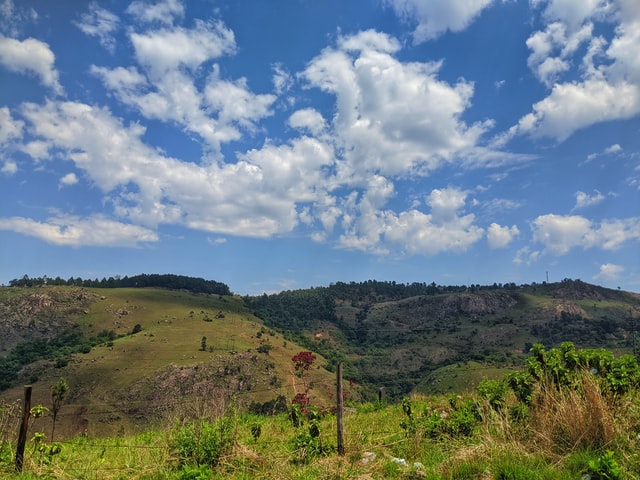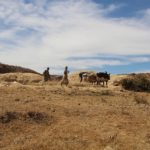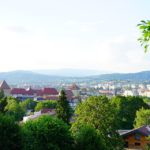Off the Beaten Path: Find Local Culture in Swaziland’s Community Ventures

It has become very apparent that more tourists want to truly immerse themselves in the culture of the country that they are visiting and to gain a better understanding of the traditional way of life. This has resulted in community-run tourism ventures springing up in a variety of places, some of which are rather surprising.
Community ventures are particularly central to the tourist industry of the Kingdom of Swaziland, a little-known country bordering South Africa and Mozambique. Not many travellers visit this country, yet when they do, they fall in love with it. Swaziland has a very relaxed and open attitude where culture is woven into everyday life.
Here, you really genuinely feel that you have stepped off the beaten track of mass tourism and are experiencing something pretty unique.
This culture is easily accessible; you can see people in traditional dress and hear kids singing and dancing in school playgrounds simply by exploring this vibrant kingdom. This makes it the ideal destination for community travellers as you will feel welcomed and truly immersed in to local life from day one.
Swaziland has many well established community-run ventures (such as the pioneering Shewula), and Swaziland’s community model is one that has been replicated in other African countries. A typical Swaziland community venture will be based somewhere relatively remote like the edge of the Lubombo escarpment and guarantee astounding views. To sustain a successful venture, communities will need to be around 70,000 strong, typically living in traditional mud huts and mostly on a subsistence lifestyle.
Off the Beaten Path: Find Local Culture in Swaziland’s Community Ventures.
Originally, going back a few decades, community ventures started with tourist accommodation being offered in traditional style rondavels built on the outskirts of the community with views looking out over the lowveld. From those early days, some ventures have now grown significantly and can offer ensuite accommodation, campsite areas, braai areas, viewpoints, conference rooms and even solar power!
For community ventures in Swaziland, remoteness is key to their enduring success and lifestyle. Imagine this for an approach to your accommodation: there are markers on cairns of rocks to guide you, although you may miss some of them along the long journey through rough dirt roads winding their way through the community.
This is the beauty of community travel as you get to see exactly what is happening in the community at that time and nothing is staged for you.
Here, you really genuinely feel that you have stepped off the beaten track of mass tourism and are experiencing something pretty unique. And if you get lost on the way, which you probably will, everyone in the area probably knows where your camp is and will go out of their way to help. You may even meet one of the people that work at the camp: do offer them a lift if that is the case.
When you stay at a community run venture, do not expect luxury, white-gloved service or everything to be slick. Do expect a genuinely friendly welcome, an insight into the Swazi local way of life and to feel part of the community after your stay. Community camps has a slower pace of life, which is a blessing as it allows you to put your experience into perspective. Make sure you sit down and have tea with the camp staff, they are really welcoming and will be delighted to chat with you.
In Swaziland, you can explore the community at your own pace and you can get directions from the camp staff if you want to do things independently. There are a number of schools to visit, markets and stalls to see, and maybe a football match. You might want to join a church service if you happen to be there on a Sunday, and there is usually a women’s co-operative or a similar venture that sells beautifully-handwoven table mats and bowls. Buying from these people directly supports the community as well.
Check out Pink Pangea’s Writing, Yoga, and Meditation Retreats.
However, the best way to explore a community is with the camp staff in the form of a guided walk. There is a cultural tour around the community and means you can get up and personal with the Swazi way of life. Each community venture is different and will do things slightly differently, but the warm Swazi culture is universal.
Staying in a community means that you can get into the rhythm of life in Swaziland. So if it is the month when brewing beer is the order of the day, then you will probably visit a homestead where there is someone brewing beer, and you will probably get the chance to taste it as well! Or alternatively, you may well visit another homestead that is grinding mealie maze or you could join in with the ladies tilling the fields.
Each community venture is different and will do things slightly differently, but the warm Swazi culture is universal.
This is the beauty of community travel as you get to see exactly what is happening in the community at that time and nothing is staged for you. If you want to spend time in a local school then all you need to do is ask the staff at the camp you’re staying at and I’m sure they can organise this for you. This is ideal for families as you could spend an hour in the school joining in with the lessons and truly experience genuine Swazi education.
And then at the end of the day you can enjoy a traditional community meal which is very tasty. It will probably consist of chicken in a peanut sauce, spinach or pumpkin tops, beans, rice and butternut squash. A very tasty and healthy meal to end a fantastic day.
Exploring this rich and beautiful country from within a healthy, community environment means you can get a whole new perspective on travel and sustainable tourism.
Photo for Off the Beaten Path: Find Local Culture in Swaziland’s Community Ventures by Unsplash.









Hi Jenny,
thank for your article!
I´m looking to experience how real life in Swaziland is and I´m trying to avoid tourist traps.
I would really appreciate if you could recommend me a couple of possibilities.
Best,
Oier
Dear Oier,
I would be delighted to help. Maybe email me at [email protected] and I can suggest an itinerary away from it all. Swaziland is perfect for this.
Best wishes,
Jenny